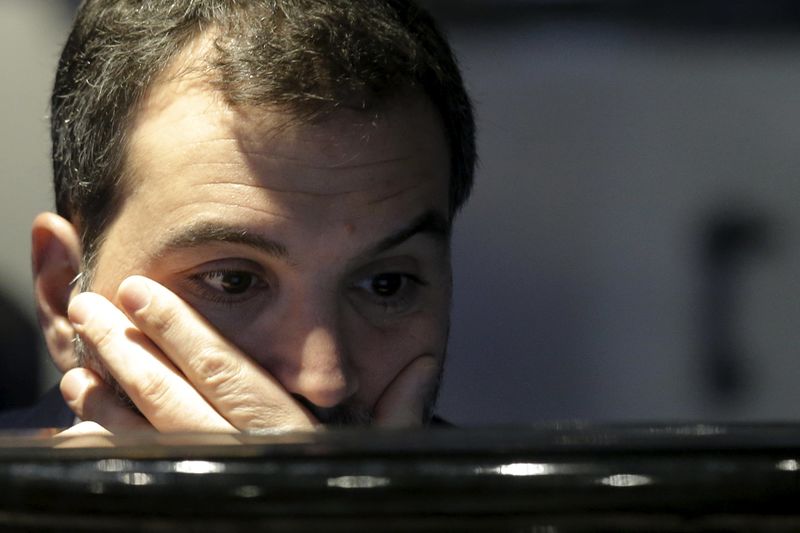By David Shepardson and Mike Scarcella
WASHINGTON (Reuters) – A U.S. federal appeals court on Friday upheld a law requiring China’s ByteDance to divest its popular short video app TikTok in the United States early next year or face a ban.
The decision is a major victory for the Justice Department and opponents of the Chinese app and a devastating blow to TikTok parent ByteDance. It significantly raises the prospects of an unprecedented ban in just six weeks on a social media app used by 170 million Americans.
TikTok plans to appeal the decision to the Supreme Court.
In outlining their support for the law, the appeals court noted that it was the result of cooperation between Republicans and Democrats, as well as two presidents, as “part of a broader effort to address a well-founded threat to the national security of the People’s Republic of China. People’s Republic of China).”
The Justice Department says Chinese-owned TikTok poses a threat because of its access to vast Americans’ personal data, claiming China can surreptitiously manipulate information Americans consume through TikTok.
Attorney General Merrick Garland called the decision “an important step in blocking the Chinese government from weaponizing TikTok.”
But the Chinese embassy in Washington called the law “a blatant act of commercial robbery” and warned the United States “must handle this matter in a cautious manner to avoid harming mutual trust between the two countries and the development of bilateral relations.” harmed.’
The ruling comes amid rising trade tensions between the world’s two largest economies after President Joe Biden’s administration imposed new restrictions on China’s chip industry and Beijing responded by imposing a complete ban on exports of gallium, germanium and antimony to the United States.
US appeals court judges Sri Srinivasan, Neomi Rao and Douglas Ginsburg rejected legal challenges from TikTok and users against the law, which gives ByteDance until January 19 to sell or divest TikTok’s US assets or face a ban imposed.
FREE SPEECH
“While today’s news is disappointing, please rest assured that we will continue the fight to protect freedom of expression on our platform,” TikTok CEO Shou Zi Chew said in an email to Reuters staff.
Free speech advocates were quick to criticize the ruling. The American Civil Liberties Union said: “Banning TikTok flagrantly violates the First Amendment rights of millions of Americans who use this app to express themselves and communicate with people around the world.”
In its analysis, the court said China, through its relationship with TikTok parent company ByteDance, threatened to distort U.S. speech through TikTok and “manipulate public debate.”
China’s ability to do this is at odds with the fundamental principles of freedom of expression. The First Amendment prohibits a domestic government from even exercising comparable control over a social media company in the United States.
The decision — unless the Supreme Court overturns it — puts TikTok’s fate in the hands of first President Biden on whether or not he will extend the January 19 deadline by 90 days to force a sale, and then into the hands of newly-elected President Donald Trump, who will take office on January 20. But it’s not clear whether ByteDance could shoulder the heavy burden of demonstrating that it has made significant progress toward a divestiture needed to trigger the extension — or whether the Chinese government would approve a sale.
Trump, who unsuccessfully tried to ban TikTok during his first term in 2020, said before the November presidential election that he would not allow the TikTok ban.
Friday’s decision upholds the law that gives the U.S. government sweeping powers to ban other foreign-owned apps, which could raise concerns about U.S. data collection — and open the door to future crackdowns on many others foreign-owned apps. In 2020, Trump also tried to ban Tencent-owned WeChat, but this was blocked by the court.
TIKTOK BAN WEAVES
If TikTok advertisers were banned, they would find new social media venues to buy ads. As a result, shares of Meta Platforms (NASDAQ:), which competes with TikTok in online advertising, hit an intraday record high after the ruling, closing 2.4% higher. Google parent Alphabet (NASDAQ:), whose YouTube video platform also competes with TikTok, closed 1.25% higher.
The court’s opinion — written by Ginsburg, an appointee of President Ronald Reagan, and joined by Rao, who was appointed to the bench by Trump, and Srinivasan, an appointee of President Barack Obama — acknowledged that its decision would lead to a ban of TikTok on January 19 without an extension from Biden.
ByteDance, backed by Sequoia Capital, Susquehanna International Group, KKR & Co (NYSE:) and General Atlantic, among others, was valued at $268 billion in December 2023 when it offered to buy back about $5 billion worth of shares from investors, Reuters at the time reported.
The law prohibits app stores such as Apple (NASDAQ:) and Alphabet’s Google from offering TikTok and prohibits internet hosting services from supporting TikTok unless ByteDance divests TikTok within the specified period.

Google declined comment, while Apple did not respond to a request for comment.
In a unanimous opinion, Srinivasan acknowledged that the decision will have major consequences, noting that “170 million Americans use TikTok to create and watch a variety of forms of free expression and connect with each other and the world. And yet, in part precisely because of the platform’s extensive capabilities, Congress and multiple presidents have determined that ridding China of control is essential to protect our national security.”


